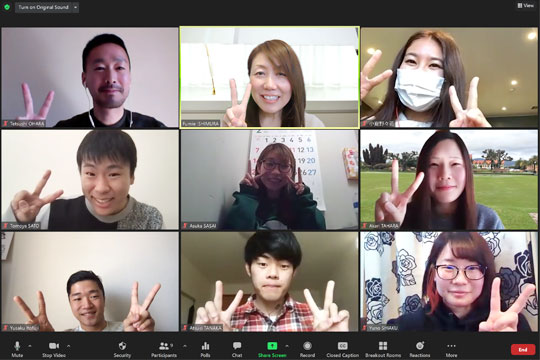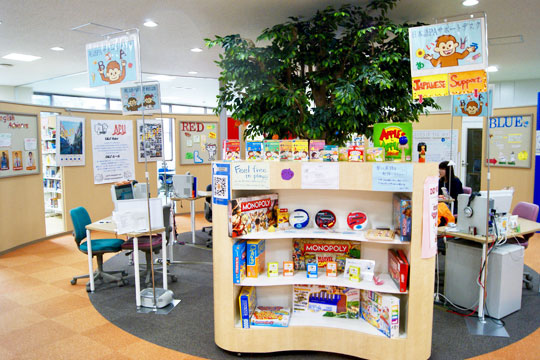The April 2021 issue of the Research Office Newsletter, a regular publication of the APU Research Office, is now available. In addition to the dialogue excerpted below, this newsletter also contains information about faculty members’ published journal articles and research-related news.
My name is OHARA Tetsushi. I currently teach Japanese as a Tenured Senior Lecturer at the Ritsumeikan Asia Pacific University (APU) Center for Language Education (CLE). My colleague, Tenured Senior Lecturer ISHIMURA Fumie, and I are honored to have our dialogue featured in this latest issue of the Research Office Newsletter. Our dialogue mainly focuses on our co-written paper published in the Studies in Self-Access Learning (SiSAL) Journal. This paper, entitled “Emergency Remote Support at the Self-Access Learning Center: Successes and Limitations”, explores how the Self-Access Learning Center (SALC) at APU has supported students during the COVID-19 pandemic. It may be accessed via the QR Code to the right.
- ISHIMURA:
- So Mr. Ohara, if my memory serves me right, you have been a SALC coordinator for Japanese language since 2016, and were involved in establishing the SALC’s mission. Is that correct?
- OHARA:
- Yes, that’s correct. The SALC aims to help students become autonomous language learners and confident language users who envision their own goals and continue to grow as lifelong learners. For this purpose, students are offered various forms of support to cultivate their language ability, learner autonomy and multi-cultural understanding.
- ISHIMURA:
- One concrete example of support offered by the SALC is individual support sessions with Peer Advisors (PAs), who are also APU Students. These sessions are incredibly popular amongst our students. English language learners may also opt for consultation sessions with faculty members known as Language Advisors (LAs).
- OHARA:
- Let’s not forget that in addition to the individual support sessions, PAs also plan academic and cultural events.
- ISHIMURA:
- That’s right! While the SALC offers academic support for students taking language classes, it also aims to promote social learning, which enhances communication skills through facilitating informal interactions and fostering of new friendships.
- OHARA:
- To elaborate on Ms. Ishimura’s point, social learning spaces (SL spaces) created by the SALC over the past few years have provided opportunities for students to freely enjoy conversations, movies, games, etc. with other students and PAs. Students often utilize these SL spaces in between classes to chat and meet up with friends. Through such interactions at said SL spaces, students are constantly learning and improving their language skills.
- ISHIMURA:
- Unfortunately, due to the ongoing COVID-19 pandemic, the SALC’s physical facilities have not been available for use since the AY2020 Spring Semester, and an alternative SALC support system had to be considered. After discussions with the English Language SALC coordinators and administrative staff at the Academic Office, an online support system was established.
- OHARA:
- We named this online support system the “Emergency Remote Support” (ERS), and assessed its successes and limitations in our co-written paper.
- ISHIMURA:
- Yes. In our paper, we defined ERS as a temporary shift of the SALC support system online during emergency situations (such as the COVID-19 pandemic) to support students learning languages. Individual support sessions and consultations with PAs and LAs respectively were conducted via Zoom rather than in person. According to our research, this online system not only provided a platform for students to learn and practice the language they are studying, but also served to relieve anxiety and stress experienced by students as a result of not being able to meet up with people.
Read the rest of the April 2021 Issue here.
Previous Research Office Newsletters are catalogued here.
Self-Access Learning Center (SALC)












